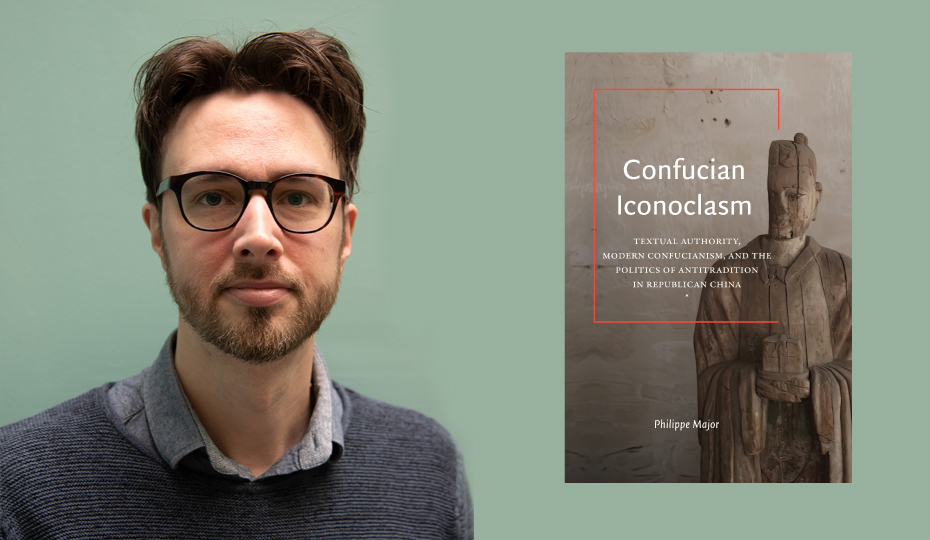/ News, Forschung
Philippe Major´s new book on Confucian Iconoclasm
Philippe Major, postdoctoral researcher at the Institute for European Global Studies, has published his first book titled "Confucian Iconoclasm: Textual Authority, Modern Confucianism, and the Politics of Antitradition in Republican China." The publication is part of the SUNY series in Chinese Philosophy and Culture and is published by SUNY Press. The open-access version of the book was supported by the Swiss National Science Foundation.
"Confucian Iconoclasm" proposes a novel account of the emergence of modern Confucian philosophy in Republican China (1912–1949), challenging the historiographical paradigm that modern (or New) Confucianism sought to preserve traditions against the iconoclasm of the May Fourth Movement. Through close textual analyses of Liang Shuming's "Eastern and Western Cultures and Their Philosophies (1921) and Xiong Shili's New Treatise on the Uniqueness of Consciousness" (1932), Philippe Major argues that the most successful modern Confucian texts of the Republican period were nearly as iconoclastic as the most radical of May Fourth intellectuals. Questioning the strict dichotomy between radicalism and conservatism that underscores most historical accounts of the period, Major shows that May Fourth and Confucian iconoclasts were engaged in a politics of antitradition aimed at the monopolization of intellectual commodities associated with universality, autonomy, and liberty. Understood as a counter-hegemonic strategy, Confucian iconoclasm emerges as an alternative iconoclastic project to that of May Fourth.
Philippe Major is a postdoctoral researcher in the SNSF-funded project The Exterior of Philosophy at the Institute for European Global Studies. His research interests include Modern Chinese Philosophy, Modern Chinese Intellectual History, New Confucianism, Sociology of Philosophy, The Relationship between Modernity and Tradition, as well as Textual Authority.

